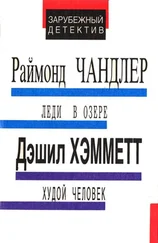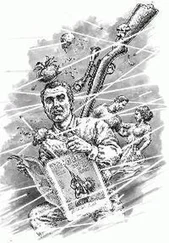Аврам Дэвидсон - Peregrine - primus
Здесь есть возможность читать онлайн «Аврам Дэвидсон - Peregrine - primus» весь текст электронной книги совершенно бесплатно (целиком полную версию без сокращений). В некоторых случаях можно слушать аудио, скачать через торрент в формате fb2 и присутствует краткое содержание. Год выпуска: 1971, ISBN: 1971, Издательство: New York : Walker, Жанр: sf_all, на английском языке. Описание произведения, (предисловие) а так же отзывы посетителей доступны на портале библиотеки ЛибКат.
- Название:Peregrine : primus
- Автор:
- Издательство:New York : Walker
- Жанр:
- Год:1971
- ISBN:0802755461
- Рейтинг книги:5 / 5. Голосов: 1
-
Избранное:Добавить в избранное
- Отзывы:
-
Ваша оценка:
- 100
- 1
- 2
- 3
- 4
- 5
Peregrine : primus: краткое содержание, описание и аннотация
Предлагаем к чтению аннотацию, описание, краткое содержание или предисловие (зависит от того, что написал сам автор книги «Peregrine : primus»). Если вы не нашли необходимую информацию о книге — напишите в комментариях, мы постараемся отыскать её.
Peregrine : primus — читать онлайн бесплатно полную книгу (весь текст) целиком
Ниже представлен текст книги, разбитый по страницам. Система сохранения места последней прочитанной страницы, позволяет с удобством читать онлайн бесплатно книгу «Peregrine : primus», без необходимости каждый раз заново искать на чём Вы остановились. Поставьте закладку, и сможете в любой момент перейти на страницу, на которой закончили чтение.
Интервал:
Закладка:
t t f t
Tradition demanded that the way into a dungeon be led by guttering torches: T. Pomponius Sulla, however traditionallyminded he might be on other matters, was not concerned with this aspect of it. The way was led by a somewhat stout butler carrying an enormous tray partly balanced on his paunch, and the tray was crowded with small and conventional terra-cotta oil-lamps, all lit. Whenever they came to a niche bearing a burned-out lamp, the butler deftly whisked a fresh one into its place and put the empty on the tray.
The party paused at one place while the master of the villa took up a lamp and held it into a side-chamber filled with amphorae. “Is that the falernian from the year of the Consulate of L. Tiberius Nerva?” he asked.
“Yes, Sir T.,” the butler said.
“You may as well start decanting some of it for the table, tomorrow, Sempronius.”
“Very good, Sir T.”
“We shan’t be able to get any more of it, you know.”
“Alas, no,-Sir T.”
[ 150 |
peregrine: primus
“And if you catch any of the kitchen-boys sipping it, dip their fingers in hot oil, do you hear?”
“Yes, Sir T. Very good. Sir T.”
They started off again, occasionally treading on ugly white patches of fungus. Ichor dripped greenly from the clammy walls in places. In another, three skeletons in armor dangled from chains. T. Pomponius Sulla clicked his tongue. “I thought we had gotten rid of those,” he said, in annoyance.
“Such were Your Honor’s orders, Sir T.,” said Sempronius. “But the blacksmith has been suffering severely from swollen joints and finds it impossible to remain in the crypt long enough to remove the shackles.”
“Well, well,” muttered the master of the Villa Sulla, “then we must simply wait till he is feeling better, poor old chap. As Epictetus puts it, There are things which can be helped and there are things which cannot be helped. Eh?”
“Exactly so, Sir T.”
T. Pomponius Sulla gave a sigh. Then he stopped and gestured with the hand holding the lamp, casting great leaping shadows. “How about this one?” he asked. “Who’s in there?”
The butler consulted his little list, having first carefully set down the tray of lamps upon a pile of skulls. “In this one, Your Honor, is the philosopher Volumnius, who, after a dinner of farced nightingales and unmindful both of the duties of a guest and of Your Honor’s vastly superior knowledge of such, as of all, subjects, had the temerity to dispute Your Honor’s judgements on the oktosyllable and the dekasyllable—”
“Ah yes. I remember now. Nobody can say that I am not a reasonable person, but it’s a funny thing about me, Sempronius. If there’s one thing I can’t stand, it’s being contradicted. Ah well. Errare humanum est, you in there, do you recant?”
After a moment a weak, hollow voice was heard to say, “It does not lie within my power to disobey, but neither am I obliged to comply. I may be constrained. I am constrained? Very well, then, I am constrained. Is it just that I be constrained? Is it, for that matter, just that my nose run? Better to wipe it than to complain. There is a place in poetry for the oktosyllable and there is a place in poetry for the dekasyllable and when the one is used where it is meet that the other is used, the result is not poetry, it is chaos. According to The
Enclitics of Euphrastus, Book XXIII, versicle —”
But T. Pomponius Sulla, with an oath, had ceased to cup his ears against the echoes. “Damn the fellow, well, there you are, that’s what it is to start up with one of those damned philosophers. —Stay there, then!” he shouted. And turning to his servants, he ordered, with another gesture, “String him up!” and, in a trice, Peregrine found himself simultaneously free of the net and with his left leg in fetters.
“Lace up the right one, too.”
“The bolt seems to be missing, Your Honor.”
His Honor sighed the sigh of the long-suffering. “Must I see to everything?” he asked, rhetorically. He clicked his tongue and retreated with one of the only two remaining lit lamps to a far corner of the next chamber. In the dimness Peregrine, staring at his fettered foot, was astonished to see another foot, gaunt and filthy and definitely not his, come out of the darkness and, seizing a rope’s end between the great- and the adjacent toe, whip it back and out of sight with an audible snap. “What was that?” demanded T. Pomponius, suddenly appearing with the other lamp.
“Rats, Your Honor.”
“Ah. Good. —Sempronius. Look here.” Lord, servants, lamp, vanished again. From the darkness came a screech, a groan, and a frightful wail of agony, such as set Peregrine’s smaller hairs upright, and all his teeth on edge.
“There. You see? The damned rack is simply a mass of rust! How am I supposed to torture anyone when the rack is simply a damned mass of rust? Is there no neat’s-foot oil?”
“There should certainly be neat’s-foot oil in the buttery, Sir
Y 99
“You mean, unless the buttery-thralls have been dressing their salad with it again.” Sempronius made a noncommital noise.
“Well, see to it, and if there isn’t any, torture the thralls and send down to the shops for some more .... Let me see. Something else on my mind. What was it?”
There was a pause, evidently long enough for Sempronius to consult his list once more. “Your Honor was going to crucify the servitor Julianus.”
“Oh yes. Yes. I was, wasn’t I? That’s the filthy traitor we left
lashed up in the forward hole, isn’t it? Do it directly. No, I won’t, either. Not enough time. Must dine with my wife. Lovely woman. Weak, of course. But there you are. Women, you know. Weak. Well, well, let’s get on with it, or the blacksmith won’t be the only one suffering from swollen joints. Dreadful chill and damp down here, don’t know why the government allows it.”
The shadows cast by the other lamp stretched out into infinity, faded away along with the footsteps, and the echoes of the voice of T. Pomponius Sulla, muttering, “Weak, weak, weak, weak, weak, weak, weak, weak, weak, weak, weak, weak.” until at length dying away into a whisper. Distant and damnably thick doors clanged shut.
And at last there was silence.
“Well, at least they forgot the lamp,” said a rather rustysounding voice.
“Oh, good,” said Peregrine. “Then I can read myself to sleep.”
Something like a chuckle came from the shadows. “No, don’t do that,” said the voice. “Bad for your eyes. —Well,” it went on, “you have seen at least one facet of the complex psyche which constitutes T. Pomponius Sulla; how do you like it?”
Peregrine said that he had seen at least three facets of the complex psyche which constituted T. Pomponius Sulla, and he asked how many there were. A considering mumble terminated in the conjecture that there were probably at least three hundred. “Well, I’m sure I won’t like any of them,” the young man said.
“What are you in for?”
“For supposedly betraying Sulla with his wife, the lady Clothilda.”
“And did you?”
“Certainly not!”
A tongue was clicked. “Your tone, my fellow-prisoner, seems to be one of indignation at my question, instead of which it should be one of great regret. You are, after all, receiving the punishment anyway. Why, therefore, should you not have committed the crime?”
Peregrine thought this over, and realized, to his mild surprise, that the indignation was not at the suggestion that he might have betrayed Sulla but at the implication that he might have betrayed Austin. And on this he meditated for a further while,
until he was interrupted by the sight of Volumnius retrieving the filched rope from the shadows and commencing to coil it up neatly with some slight murmur of gratification. “That was neatly done,” he observed.
Читать дальшеИнтервал:
Закладка:
Похожие книги на «Peregrine : primus»
Представляем Вашему вниманию похожие книги на «Peregrine : primus» списком для выбора. Мы отобрали схожую по названию и смыслу литературу в надежде предоставить читателям больше вариантов отыскать новые, интересные, ещё непрочитанные произведения.
Обсуждение, отзывы о книге «Peregrine : primus» и просто собственные мнения читателей. Оставьте ваши комментарии, напишите, что Вы думаете о произведении, его смысле или главных героях. Укажите что конкретно понравилось, а что нет, и почему Вы так считаете.






